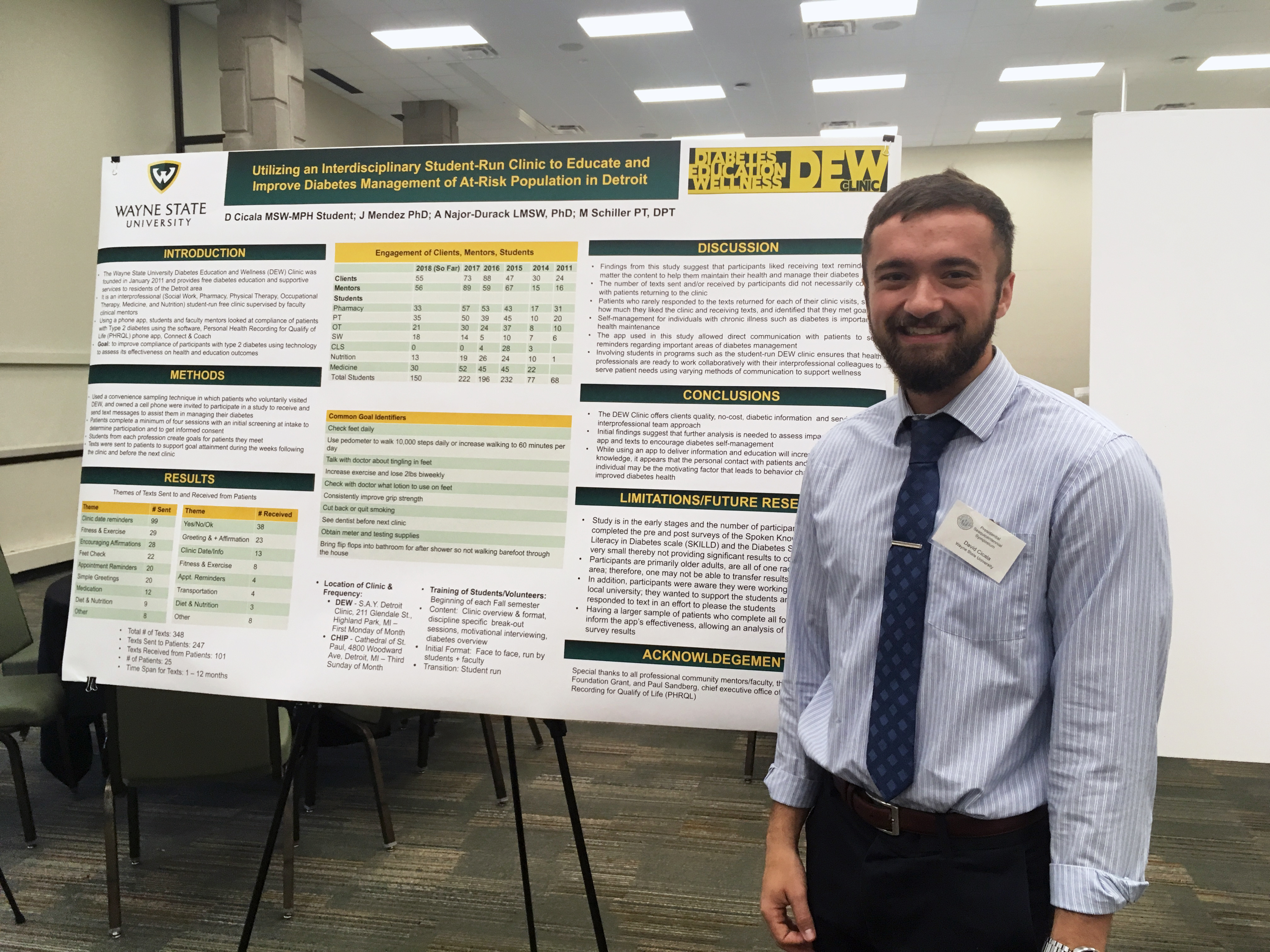Modern health inequities require transdisciplinary approach
Wayne State University launched a joint Master of Social Work and Master of Public Health degree (M.S.W./M.P.H.) in Fall 2017 to meet the rising workforce demand for practitioners with competencies in both disciplines.
According to the Bureau of Labor Statistics, employment for public health social workers is expected to grow 20 percent over the next ten years, much faster than the average for all occupations (2016). Why?
Health inequities are on the rise, said Dr. Kim Jaffee, associate social work professor and director of the joint degree program at WSU. There's an increase in chronic and persistent infectious diseases, substance abuse, gun violence and suicide, and the added challenges of an aging population, immigration, climate change, and the uncertainty around healthcare and reforms in this country; challenges that require more graduates familiar with a transdisciplinary approach.
WSU's M.S.W./M.P.H. program requires 67-96 credits, depending on students' concentration and whether they have a Bachelor of Social Work, and is one of only three in Michigan-the others the University of Michigan and Michigan State University, which is awaiting accreditation. The only Michigan program to make MPHonline's Top 30 Most Affordable Dual MPH/MSW Degree Programs, it's cheaper, too.
What really sets it apart is the urban setting of Detroit, Jaffee said.
"Rates of poverty, homelessness, and substance abuse are particularly high in Detroit compared to other areas of Michigan," Jaffee said, "and students have a chance to work within these challenging health areas in their field placements and conduct research with professors from both disciplines."
Wayne State's first M.S.W./M.P.H. cohort enrolled in Fall 2018 and consists of two students who were both sold on the idea of conducting fieldwork in the heart of Detroit.
"I wanted to work for the people in my community and so learning within the community seemed like the best way to get hands-on experience," said Payton Daugherty, a native Detroiter.
Daugherty completed her first field placement with the National Council on Alcoholism and Drug Dependence and wants to work in a hospital for her second.
David Cicala gets plenty of hands-on experience as a program coordinator at two student-run clinics, the Diabetes Education

in San Diego, 2018; photo taken by Kim Jaffee.
and Wellness and the Community Homeless Interprofessional Program clinics.
"Having the opportunity to know clients from a different socioeconomic background than myself has opened my eyes to the staggering effects of lacking resources," Cicala said, and has caused him to recognize his own privilege.
Born with pulmonary stenosis and diagnosed with type-I diabetes at age 7, Cicala acknowledges that his access to healthcare and a solid support system allowed him to overcome these challenges and live a healthy life, resources those in underserved communities don't always have the access to.
That's where public health social workers come in.
"If we give people the means and the know-how to succeed, we can promote better health outcomes," Cicala said.
More information about the program can be found on the School of Social Work Programs page.